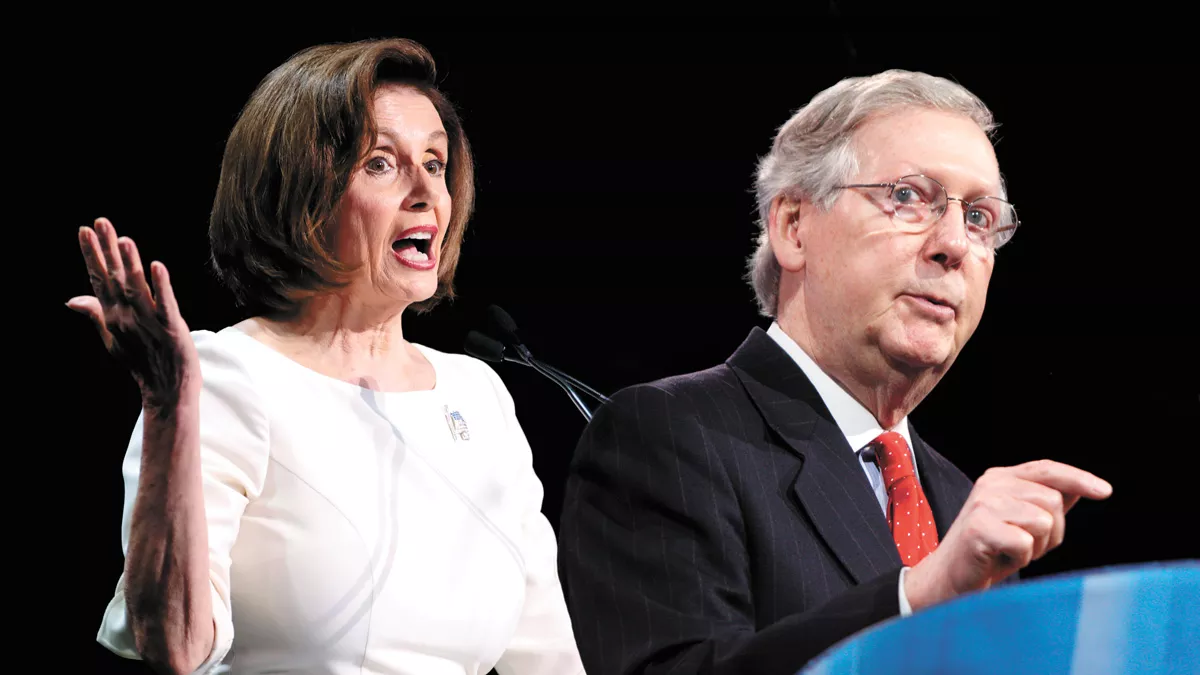
I consider myself the middle ground. I have been called "middle-of-the-road Mike" by colleagues on opposite ends of the political spectrum. Although I lean center-right and have been on the Spokane Republican Central Committee, I think solutions can be found on both sides of the aisle.
U.S. politics have never been for the lighthearted — our freedom of speech assures that. It is a great gift that comes with its own set of challenges as our historically analog communication systems become digital, and speech can travel from a thought to the world in seconds, regardless of how true it is.
Because of digital speed and access, our politics have moved to the extremes of each side of the spectrum. Each party views political outcomes as a zero-sum game. Someone must win and someone must lose, not what is best for most Americans.
Political tribalism: If you are not 100 percent onboard with the tribe's thoughts, you must be canceled. No middle ground, even when collaboration makes sense.
Another stimulus: As the last stimulus runs out, you can say it has done its job. Avoided a massive economic collapse by getting money into the hands of individuals and businesses. It was a little too rich in some areas and may have slowed the recovery, but we need another right-sized one as we continue to work our way out of this pandemic. Those who point the finger at Speaker of the House Nancy Pelosi need to know that the House passed its version back in May and Sen. Mitch McConnell has sat on it in the Senate all summer. Those who point the finger at Republicans need to understand that President Trump has agreed to much of what the House wants, but not everything.
Federal deficit: While we need stimulus now, we have long-term fiscal issues. For the past 40 years, we have fallen into this trap of adding more benefits and lowering our taxes. That is the recipe that basically bankrupted Greece, Spain and others. We are on that same path as each U.S. taxpayer's portion of our current debt is now $216,000. We need a real conversation about increasing taxes and decreasing expenses, so our children do not inherit a country in financial ruins.
Police reform: Defunding is not a solution. I have nothing but respect for our police and the service they provide our communities, but training reform is a must. So is accountability to the citizens. This on its surface would seem to be an easy lift, but from experience, it is anything but.
Affordable Care Act: I think we can all agree that our U.S. health care system is financially broken. Not many industries can operate with the client having no idea what the service will cost. I think many of us would consider a universal health care system that is not tied to an employer, but not until some of the systemic billing and cost issues are resolved. Raising taxes to plow into a system with no cost controls will end in failure.
Federal term limits: Our Founding Fathers did not envision professional politicians. Congress has not passed an actual budget since 1996. They are more worried about getting elected and this mentality puts the common good of the citizens second. I propose 12 years: two Senate terms or six House terms or a combination thereof. Twelve years in D.C. is enough.
Gun control: I like my guns and support the right to keep and bear arms. But some commonsense gun controls such as enhanced background checks seem logical and needed.
In this day and age, you can't be a pro-choice Republican or a pro-gun Democrat and get elected. Until the moderates in each party start getting behind candidates who want to find solutions rather than pass litmus tests, we are going to be stuck living in our isolated tribes battling each other with very little to show for it.
How far apart we are can be summarized in a mask. ♦
Michael Allen, a business and entrepreneurship professor at Spokane Community College, is a former associate athletic director at Eastern Washington University. A longtime Republican, he previously served six years on the Spokane City Council.



















